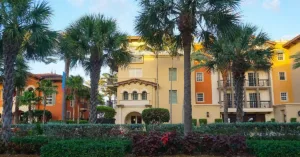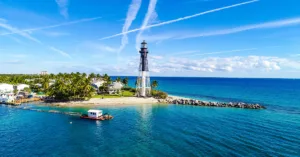Anyone who lives in a hurricane-prone part of the United States, especially Florida, knows how important it is to safeguard residential and commercial properties from the devastating effects of hurricanes. These tropical cyclones have the potential to cause significant physical and economic damage—and investing in impact glass windows is one of the most effective ways to mitigate these potentially destructive forces.
Every hurricane prevention project starts with selecting a competent installer; however, once all of that is in place, you will always be left scratching your head, wondering what to expect ahead of the process. Regardless of whichever sort of hurricane alteration you plan to make to your house, read on to find answers to some of the most common hurricane impact glass questions to get started.
What is Hurricane Impact Glass?
Hurricane impact glass is manufactured by pressing several distinct layers of laminated glass together, with an ultra-thin sheet of film applied to it, which protects the window from shattering even when subjected to severe winds, falling debris, and especially, hurricanes. Before installation, most windows are subjected to a large-missile test to ensure they remain intact no matter how much force is applied to the window or door.
How Long Does Hurricane Impact Glass Last?
While impact glass may be more expensive than ordinary glass, it pays for itself over time by preventing damage to any property. Depending on the manufacturer and the materials used, many impact glasses are guaranteed to perform perfectly for 10 to 25 years. However, when glass reaches the 10-year mark, it becomes increasingly vital to consult a professional for further evaluation to determine whether it needs to be replaced.
Does Impact Glass Only Protect Against Hurricanes?
Impact glass is well recognized as a reliable source of protection against hurricanes and other severe weather conditions. However, apart from that, they may also be used as a type of defense against various other threats of a home invasion since almost no amount of human force is powerful enough to shatter them. So, no matter whether the source is a storm-tossed piece of wood or an intruder trying to break it with a hammer—the glass simply won’t break.
Can Impact Glass Help Improve Energy Efficiency?
Impact glass is not only valuable for high-velocity hurricane zones (HVHZ), but it is also effective at lowering energy bills by reflecting outside heat and regulating the temperature of a home’s interior space. Several different metal oxides are applied to energy-efficient glass panes to reduce the excessive absorption of heat—lowering the energy costs and carbon footprint by improving thermal comfort for people working or living inside.
Is There a Florida Building Code for Impact Glass?
Following the destruction brought about by Hurricane Andrew in 2001, the Florida Building Code (FBC) Association enacted stricter regulations for wind-and debris-resistant dwelling construction. If a property is located within one mile of the coast with 110 mph wind speed, the Florida Building Code (FBC) mandates that the window and door be made of impact-resistant hurricane-resistant glass.
The Final Cut
Now that you’ve gotten answers to the most common hurricane impact glass questions, it’s time to hire an experienced installer. If you’re located anywhere near Florida’s southeast coast, contact A-Christian Glass. We’ve been in business since 1988, aiming to make Florida—a hurricane-safe state.




